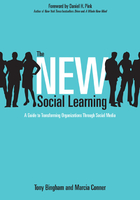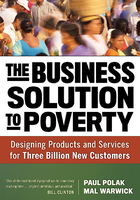1.What Is Small Talk For?
DO YOU WANT NEW FRIENDS? START HERE.
You say small talk is a waste of time or a necessary evil. I say small talk is a very good thing indeed.
Let's define small talk as a light, pleasant, and safe verbal exchange that allows people the time and association to get a sense of each other before developing a deeper sense of relationship. When meeting new people, it consists of introductions, exchanges of personal information and interests, and searching for topics of mutual interest. With people already known to you, it involves the sharing of feelings, opinions, gossip, jokes, and observations.
Small talk implies aimlessness, where what is said is less important than the fact that we are actually saying something (anything!) to a particular person. Small talk has an important social-emotional role in life; it is universal, ubiquitous, and fundamental for knitting a society together.
Small talk is the language of relationship and friendship.
And you love small talk. (Oh, yes, you do!)
Do you doubt me? Take the following test:
Do you stop and chat as you pass a neighbor on the streets?
Do you “shoot the breeze” with the guys at the filling station?
Do you “dig the dirt” at the beauty parlor?
Do you “schmooze” with your old friends?
Do you “chew the fat” with your coworkers?
Do you “kill time” as you wait at the train station?
Do you “chill” with your buddies?
And you're going to tell me that you hate doing all of those things? No, you are not. You just have never thought of these exchanges as being small talk, the heart and soul of the social communication flow that keeps you in touch with people and your community.
Human beings have a tendency to form Us/Them dichotomies and to favor the former. These conversations are comfortable for you because you perceive these people as being your tribe, your Us. We chat easily with “our folks.” We stiffen up with the “elsewhereians” whom we're not so sure about.
You can read Robert Sapolsky's book Behave for his thorough review of the research on this concept. In it he shows us how much “Us/Them-ing” is subconscious stuff with biological underpinnings. For example, before you are even one year old, you are marking distinctions between sexes and races. You are also noticing if the language spoken to you sounds different from that of your mother tongue. Of course, the learned component is well known to us all:
You've got to be taught to hate and fear
You've got to be taught from year to year,
It's got to be drummed in your dear little ear,
You've got to be carefully taught.
You've got to be taught to be afraid
Of people whose eyes are oddly made
And people whose skins are a different shade,
You've got to be carefully taught.
From South Pacific by Rodgers and Hammerstein
“Dear little ears” is the scary part here. Us/Them distinctions learned early are the hardest ones to overcome. And Sapolsky writes that we make these Us/Them decisions in a fraction of a second, decisions that dictate our attitude and behavior toward a new person. We're talking about the mechanism of discrimination, aren't we? By “discrimination” I mean simply that we can see a difference—but when does a difference make a difference? That's another question.
From time to time, I call a friend from high school who has lived in a small town in eastern Washington all her life. Since high school, our lives have taken on dramatically different dimensions, which were never more clear than with the 2016 US presidential election.
ME: So, how you doing, Ellie?
ELLIE: Now, that's a trick question! I ain't dead yet, how's that? Ya got your Trump sign on your lawn? (HAHAHA!)
ME: No, I don't, but I know you do.
ELLIE: You got any Trump signs on your block?
ME: Nooo, don't believe I do.
ELLIE: Yeah, but down there in San Francisco, you've got a lot of . . . you've got a lot of them . . .
ME: Are you asking about people of color, Ellie?
ELLIE: Yeah!
ME: The answer is, “Yes, we do.”
ELLIE: . . . and you . . . you talk to them, do you!?
ME: Yes, Ellie, I do.
In her words, tone, and context, Ellie was showing how clearly she saw the distinction between Us and Them.
I'll quote now from the wonderful book by J. D. Vance, Hillbilly Elegy. The author, the hillbilly who made it to Yale, was back in his hometown of Middletown at a gas station.
As I realized how different I was from my classmates at Yale, I grew to appreciate how similar I was to the people back home. Most important, I became acutely aware of the inner conflict born of my recent success. On one of my first visits home after classes began, I stopped at a gas station . . . the woman at the nearest pump began a conversation, and I noticed that she wore a Yale T-shirt. “Did you go to Yale?” I asked. “No,” she replied, “but my nephew does. Do you?” I wasn't sure what to say. It was stupid—her nephew went to school there, for Christ's sake—but I was still uncomfortable admitting that I'd become an Ivy Leaguer . . .
I had to choose: Was I a Yale Law student, or was I a Middletown kid with hillbilly grandparents? If the former, I could exchange pleasantries and talk about New Haven's beauty; if the latter, she occupied the other side of an invisible divide and could not be trusted.
Images
If you believe that prejudice based on any personal distinction is pernicious, then might I interest you in a mechanism for bridging the social gap, a tool available to everyone? It's called small talk.
The small talker is on the front line of engaging with Thems. It makes Thems safe, it makes Thems welcomed. This can be fun for you—and there are also lots of reasons why it may be scary, like finding yourself on the tightrope, in front of a crowd, without a net, extending friendship to a person who has not yet qualified as an Us.
But these divisions are not immutable; they can be changed in the twinkling of the eye. A person once regarded as a Them can easily become an Us. I argue that this is truly the Serious Business of Small Talk.
This is what you want out of social conversation:
turning strangers into friends.
It is you and I with our friendly overtures to erstwhile strangers who can move the dial to greater circles of comfort and friendship. The talk may be small, but the impact is big. You negotiate the beginning of all relationships through appropriate small talk.
THE SERIOUS BUSINESS OF SMALL TALK
The serious business of small talk is:
? To bring people together
? To facilitate understanding and trust
? To find or confirm friendships
? To avoid conflict
? To expose you to different points of view
Got the picture? Small talk is your social future.
Now, how can you say you “just hate” this? What I think you actually hate is that teensy-weensy small percentage of situations where you must negotiate a stone-cold start with a stranger.
You feel okay when a Them is selling something or giving directions. This shared purpose clarifies and comforts. And you can be with old friends and not have anything in particular to talk about and that feels okay too.
But to act overtly friendly with total strangers with nothing to talk about, possibly being witnessed by other people—that's what you hate. You hate that flood of anxiety, the feeling of foolishness, the fear of the phony, the awkwardness of making it all up on the spot. Your emotional centers are on high alert: “Watch out, there's a Them!”
All of this Us/Them tension usually goes unacknowledged, as is the cognitive/emotional war going on inside your head. Your emotional brain is yelling, “Stranger-danger!” while your cognitive brain is trying to comply with the social expectation that you act as if you were already friends. And the cherry on top is that there is always the possibility of rejection!
I think that's the small talk you hate, and who can blame you? It is painful!
These stressful situations call for a mechanism, a tool, an attitude for moving through the discomfort of bridging this social gap. The rituals and pleasantries of small talk are designed to deal with just these ambiguities. It starts with a smile, a hello, and an outstretched hand. If you can do this, we can get started with all the rest.
Small talk is a crucial social lubricant,
as valuable as wine or laughter.
Small talk takes many forms. Remember the tofu analogy from the introduction? Its goal is to be easily digestible, readily available, and utterly bland, taking on the flavor of whatever context you're in. At one extreme is the simple exchange of acknowledgement between people: one person knocks, the other opens the door. To not acknowledge the knock would be felt as an affront (but maybe that's exactly what you want to communicate). The polite thing to do is to offer and acknowledge these greetings as a matter of course. It costs you nothing and engenders goodwill on your behalf. It's just common courtesy to get something verbal going when you come into contact with someone—even if it is totally banal.
Small talk may not reveal your intellect,
but it does reveal your humanity.
Here's something very interesting about small talk in an elevator. As a new person gets on, she may make the slightest of accidental eye contact with someone, and she may say, “Good day.” The recipient will then acknowledge the greeting with a minimal response: “Hello.” And that's it until the elevator stops.
Now, observe: If there has been such an exchange, these two people will also say something as one of them exits the elevator, even if they are complete strangers to each other.
Have a good one.
Take it easy.
Enjoy the rest of your day.
The door they knocked on ever so slightly was still open and needed closure. But if there hadn't been a “howdy” when one of them entered, there wouldn't have been a “so long!” when they exited. This is an example of the courtesies and rituals that characterize the first stages of chit-chat. It lays the foundation for further exchanges to ensue.
And this is why it is good practice to acknowledge people with some kind of greeting. A “hello” or “good day” will do. Even a nod and a grunt can register as an acceptable acknowledgement. Later on, you may find yourself nodding to each other going down the hall. You'll want that in your social pocket.
Oh yes! We ran into each other at the Fairmont, right?
Allow me to introduce myself…
This could be the beginning of a relationship that can be useful to you.
Speaking of usefulness, people can have strong motives in initial conversational exchanges. We cannot characterize all of them as aimless, since there is an exploratory exchange going on. As an example, let's go to a commercial convention to observe some of the conversations going on.
On the convention floor:
Hello! I'm Joe Bailey with Lucky You! cosmetics. I've brought some product samples if you're interested. Perhaps you can visit our booth so I can get to know you better.
Here, the greeting is the first face of networking, which is the social edge of marketing your business.
Now, at the bar:
Hey, baby! Can I buy you a drink? I'd like to get to know you better!
Now Joe is chatting up a woman. His intention is clear, and it's not cosmetics. Again, it's the early negotiating phase of relationship building. If this phase of social conversation has you stymied, believe me, the Internet is full of advice for you, usually from young men who have all kinds of tricks up their sleeves to achieve success.
Both examples qualify as a subset of small talk but with the degree of intent as the variable. It's the invisible X factor behind the banalities in these early conversations—the sort-of hidden agenda—that supplies much of the discomfort and uncertainty.
THE SERIOUS BUSINESS OF GOSSIP
MOM: Thumper, what did your father tell you?
THUMPER: “If you can't say something nice, don't say nothing at all.”
Thumper's daddy probably also told him:
Great minds discuss ideas.
Average minds discuss events.
Small minds discuss people.
Well, sorry, Thumper. Small-minded or not, we are all constantly talking about other people. And for good reason—what is more interesting than other people?
According to social psychologist Nicholas Emler of the London School of Economics, more than 80 percent of our small talk is about other specific and named individuals. In fact, evolutionary psychologist Robin Dunbar suggests that the evolution of human language was powerfully motivated by the need to gossip as a primary function. That is because gossip allows you to learn the lessons of your culture about what is acceptable and what is not, according to Daniel Menaker, the author of A Good Talk: The Story and Skill of Conversation. Gossip tells us:
That neighbor is in need of some help.
So-and-so is in line for a big promotion, but we're not supposed to know.
That piano teacher was reeking of alcohol on his last home visit.
It's why most of this kind of small talk has to do with status change: Who's going up? Who's on the way down? And who's got a new Tesla?
Okay, so we understand its social regulation purpose, but why is gossip so delicious?
It's because the sharing of secrets gives you a taste of intimacy. It bestows a sense of “kindred souls,” without which there is scant access to the inner thoughts and feelings that make our lives (and the lives of others) comprehensible, even to ourselves.
Gossip supplies facts that personal observation cannot. It is a form of small talk in that the process is more important than the substance. The sense of intimacy is paramount, and the shared information is incidental.
When you share a secret, you are making an effort to build a bridge to another person—a Them—so that they start feeling like an Us.
Gossip is respectable, universal, essential, and fun. It is the stuff of community.
If you can't say something good about someone,
sit right here by me.
Remind me to put that on a pillow.














